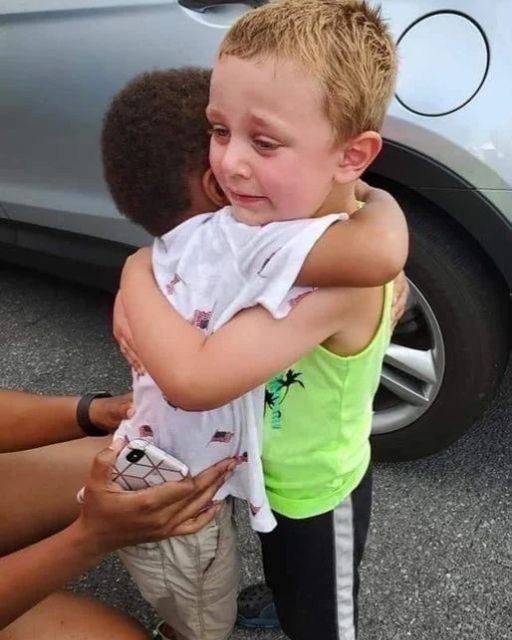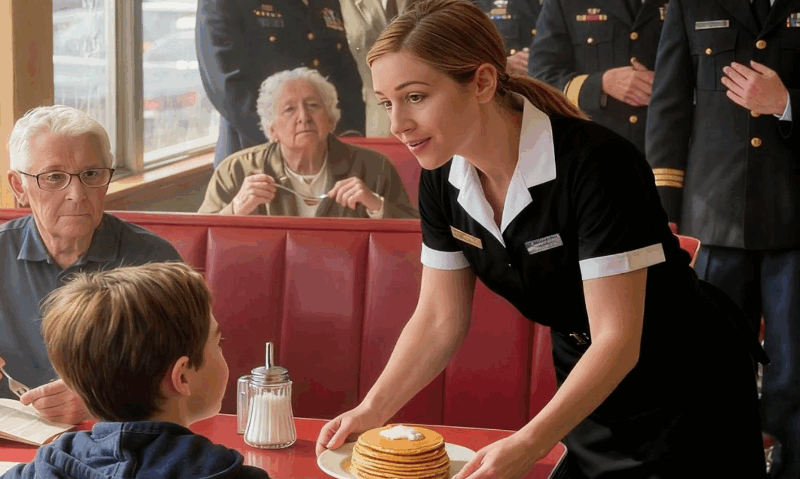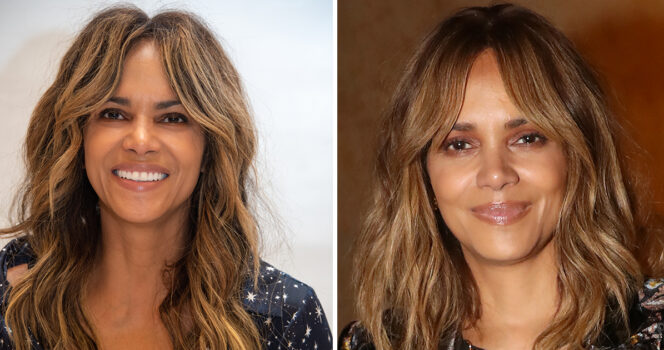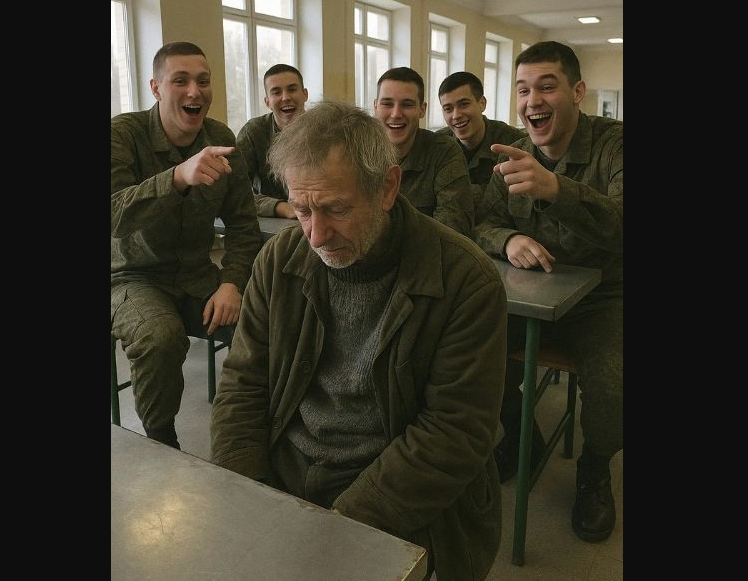That’s my son in the green tank top, crying like his heart’s breaking. The boy he’s hugging is Micah, his best friend since preschool. They’re inseparable—like, they finish each other’s sentences, trade fruit snacks without asking, and once tried to “run away” together by packing granola bars and hiding in our laundry room.
So yeah. This was brutal.
Micah’s family invited us to his sixth birthday party last weekend—park, balloons, superheroes, the whole deal. I’d RSVPed weeks ago. My son had his costume picked out. He couldn’t wait.
But then something happened.
I was at the grocery store, in line, and I ran into Micah’s dad. We started chatting casually, until he made a comment—out of nowhere—about how “kids that age shouldn’t get too close, or they’ll start getting confused.”
I asked what he meant, and he just smiled and said, “Y’know… people like to push this whole ‘colorblind friendship’ thing, but we’re not doing Micah any favors pretending race doesn’t matter.”
I stood there, stunned. My kid is white. Micah is Black. I had never once thought that mattered between them—and clearly, neither had they.
I didn’t argue. I just nodded politely and left.
Later that night, I told my son we weren’t going to the party. I didn’t explain why—I just said something had come up. He sobbed. Like deep, hiccuping sobs. And when we saw Micah a few days later—just by chance—he ran up and hugged my son like this, asking if he did something wrong.
And just as I knelt down to explain gently, Micah’s dad walked over, looked me dead in the eyes, and said, “You know, sometimes adults make mistakes. But kids? They see things clearer than we do.”
His words hit me hard. I mumbled an apology and quickly ushered my son away. That night, I couldn’t sleep. All I could think about was the hurt on both boys’ faces—the confusion, the betrayal. It felt wrong. Really, really wrong.
The next morning, I decided to call my sister, Clara. She’s always been the level-headed one in our family, and I knew she’d give it to me straight. After explaining everything, she paused for a long moment before speaking.
“Okay,” she said slowly. “Let me get this straight. You heard Micah’s dad say something you didn’t agree with, so instead of talking to him about it—or even thinking about whether your kids’ friendship might actually be stronger than his opinion—you pulled the plug on their plans?”
Her tone wasn’t judgmental, but it stung all the same. “I didn’t pull the plug!” I protested. “I just… needed time to process.”
“Sure,” Clara replied dryly. “And now you’ve got two sad little boys who don’t understand why they can’t hang out anymore. Does that sound fair to you?”
I sighed. She had a point. “What am I supposed to do? Pretend I didn’t hear what he said?”
“No,” she said firmly. “But maybe you should talk to him. Ask questions. Figure out where he’s coming from before you decide what’s best for everyone involved.”
Her advice stuck with me throughout the day. By evening, I realized I owed it to both my son and Micah to clear the air. So, after some hesitation, I called Micah’s dad.
“Hey, uh, Seth,” I began awkwardly when he answered. “It’s Mia. Look, I wanted to apologize for how things went down. Can we meet up sometime? Maybe grab coffee or something?”
There was a pause on the other end. Then, to my surprise, he chuckled softly. “Yeah, sure. Let’s do it.”
We met the following afternoon at a small café near the park. The conversation started off tense, but eventually, Seth opened up. He explained that his comments at the grocery store weren’t meant to imply anything negative about my son or our family—they were more about his own fears as a parent.
“I worry about Micah growing up in a world where people will judge him based on the color of his skin,” Seth admitted. “I guess part of me panicked when I saw how attached he was to your son. Not because of your kid specifically—but because I want Micah to understand that not everyone will accept him the way you guys have.”
I nodded, feeling a lump form in my throat. “I get that. But isn’t sheltering them from these kinds of friendships just reinforcing the idea that differences are bad? Shouldn’t we be teaching them that relationships can transcend those barriers?”
Seth looked thoughtful. “Maybe you’re right. Honestly, I’ve been second-guessing myself ever since that day. Seeing Micah cry over losing his best friend broke my heart.”
We talked for another hour, hashing out our perspectives and finding common ground. By the end of it, we agreed to let the boys reconnect—not just for their sake, but for ours too. As parents, we needed to model openness and understanding, even when it felt uncomfortable.
When I told my son the news, his face lit up like Christmas morning. “Does this mean I can go to Micah’s house?” he asked eagerly.
“Better,” I said with a smile. “Micah’s coming over tomorrow. His dad and I worked things out.”
True to his word, Seth brought Micah over the next afternoon. Both boys squealed with delight, immediately disappearing into my son’s room to play. Meanwhile, Seth and I sat in the living room, sipping tea and keeping an ear out for any signs of trouble (not that we expected any).
“You know,” Seth said after a while, “this whole thing made me realize something. Fear makes us do stupid things. I was so focused on protecting Micah from potential pain that I almost robbed him of one of the purest joys in life—a true friend.”
“And I was so caught up in being offended that I forgot to listen,” I added. “Guess we both learned a lesson here.”
He grinned. “Parenting 101: Always mess it up, then figure it out together.”
Over the next few weeks, the boys resumed their usual antics, blissfully unaware of the drama that had briefly separated them. Watching them laugh and play reminded me of something important: Kids don’t see barriers unless we build them. Their friendships are built on shared experiences, trust, and love—not labels or stereotypes.
As for Seth and me, we became closer friends ourselves. Our initial misunderstanding turned into a bond rooted in mutual respect and a commitment to raising compassionate, empathetic children. Together, we navigated the challenges of parenthood, learning from each other along the way.
One evening, as I tucked my son into bed, he looked up at me with sleepy eyes and said, “Mom? I’m glad Micah’s my best friend.”
“Me too, buddy,” I replied, brushing a strand of hair from his forehead. “Me too.”
This story taught me that fear and misunderstanding can drive wedges between people—but communication and empathy have the power to heal those divides. Whether it’s between parents, friends, or communities, taking the time to truly listen can transform conflict into connection.
If this resonated with you, please share it with others. Let’s spread kindness, understanding, and the reminder that sometimes, the simplest solutions are the most profound. And hey, if you liked it, don’t forget to hit that like button! ❤️




